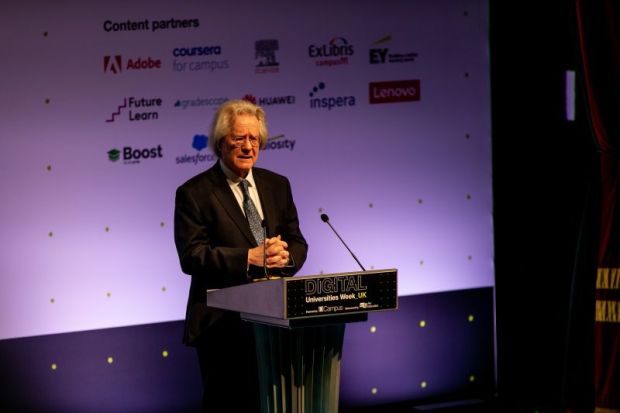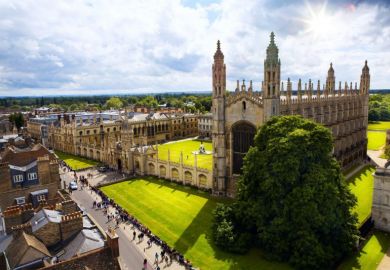Academia should accept the inevitability of digitisation and focus its efforts on ensuring that academic freedom and a sense of community survive the process, according to the philosopher A. C. Grayling.
Governments will drive institutions towards cheaper online teaching in the coming years, he said, while some faculty would also welcome the time that pre-recorded lectures and automated exam marking frees up for research.
“Think about how much it would cost to build a university today. It’s never going to happen again. If you could do the university online, it would be a millionth of the cost, and that is the future,” said Professor Grayling, who is the principal and founder of the New College of the Humanities at Northeastern University, based in London.
“There seems to be some kind inevitability that the great castles of higher education today will become rather like the medieval castle,” he said.
Most people working in higher education were upbeat about digitisation, but they are also “trying to hang on as long as possible” to the familiar, in-person parts of university life, he said. “We’re all saying, ‘We welcome them, provided we can just welcome the bits that won’t impact the traditional model too much.’”
Instead of resisting digitisation in its entirety, academics should concentrate on protecting the precious parts of the current model and avoiding the creation of a low-cost gig economy. “We’ve got to find a way of identifying very accurately the things about in-person education and about security of employment for valued faculty which we can incorporate into this new model,” he said.
Aside from the freedom to criticise that comes with job security, he said, digitisation should seek to preserve the other precious parts of the university experience: “Parties, love affairs, friendships that you make, late-night conversations where you really had some insight or suddenly things were revealed to you.”
Professor Grayling was speaking to Times Higher Education after giving a keynote address at its Digital Universities Week UK event.
Register to continue
Why register?
- Registration is free and only takes a moment
- Once registered, you can read 3 articles a month
- Sign up for our newsletter
Subscribe
Or subscribe for unlimited access to:
- Unlimited access to news, views, insights & reviews
- Digital editions
- Digital access to THE’s university and college rankings analysis
Already registered or a current subscriber?








